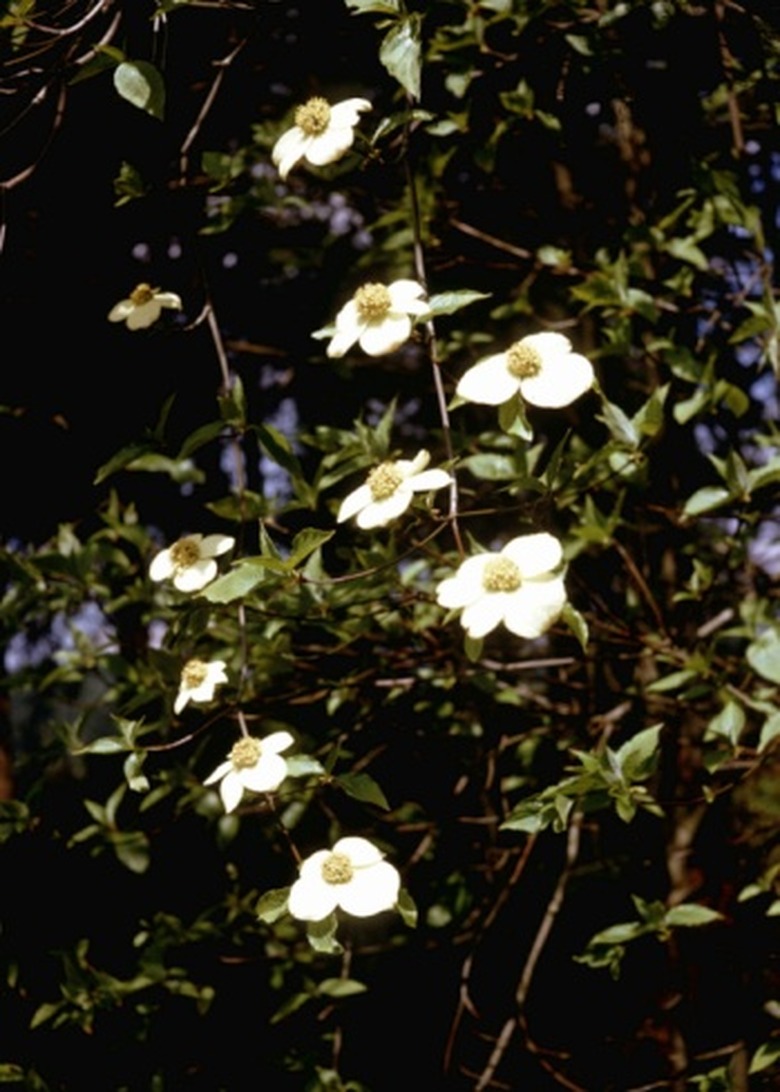What Bushes Have Red Branches?
While many gardeners view the winter as a period of inactivity while waiting for spring, several small plants add color to winter landscapes with their colorful bark. In addition to providing color in winter, small, colorful shrubs provide valuable habitat for wildlife and have attractive features that stand out in your home garden throughout the year.
Red Twig Dogwood
Several species of red twig dogwood trees have bright red bark, however, the redosier dogwood (Conus sericea) has some of the most vibrant winter colors. These red twig dogwoods are small, fast-growing shrubs that reach a mature height of 6 to 10 feet. Redosier dogwoods produce edible fruit that attracts wildlife throughout the summer and fall and have small white flowers in spring. To maintain their attractive red bark, red twig dogwoods should be trimmed back to the ground each winter to spur new twig growth in spring.
White Willow
White willow is a large, sweeping willow tree usually found along stream banks in nature. Mature trees often grow more than 75 feet tall when mature; however, white willows, when pruned regularly, can be maintained as a small trees for home gardens. New growth on white willow trees has a distinct red-orange color on the bark and twigs. Winter pruning is necessary to limit the tree's growth as well as promote the development of new, red shoots. Willows grow well in home gardens when planted in moist, well-drained soil.
- While many gardeners view the winter as a period of inactivity while waiting for spring, several small plants add color to winter landscapes with their colorful bark.
- Mature trees often grow more than 75 feet tall when mature; however, white willows, when pruned regularly, can be maintained as a small trees for home gardens.
Rose
Several wild roses have red stems that provide color for winter landscapes. The wild rose (Rosa woodsii) and Virginia rose (Rosa virginiana) are both attractive perennial shrubs that produce bright flowers through summer and have reddish bark that stands out in winter landscapes. The Virginia rose grows up to six feet tall, however, it requires regular pruning to maintain an attractive appearance. Both roses have attractive fall foliage that reveals red bark in late autumn. Plant wild roses in full sunlight.
